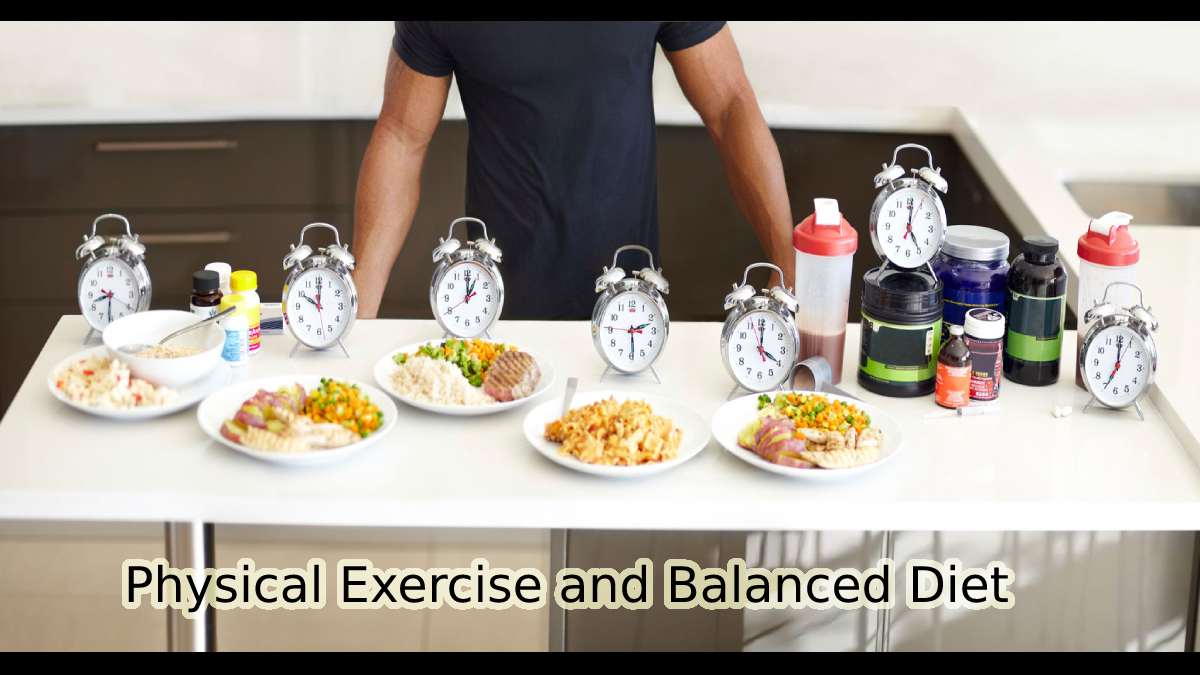Table of Contents
What should you eat?
Physical Exercise and Balanced Diet – The specialists Real Madrid Medical Services have designed some general guidelines to guide the nutrition of athletes and fans. Which include the most basic principles for enjoying a healthy lifestyle. Dr. Carlos Díez, director of the Sanitas – Real Madrid Medical Services, recommends “eating foods that contain all macronutrients in a balanced way, including proteins (15%) and fats (between 10 and 15%), in addition to carbohydrates (between 65% and 70%). In addition, it recommends that the fats are vegetables or come from oily fish”—an healthy lifestyle. Likewise, it is essential that carbohydrates, the most significant providers of immediate energy. Have a high percentage of the glycemic index, which determines how quickly they pass into the blood.
Forever
- should consume waterIt purifies, restores, and regulates body temperature during exertion, known as the “radiator effect,” which favors recovery after physical exercise and delays muscle fatigue. A degree of dehydration of 4% can cause cardiac output to increase by up to 18%, leading to the onset of fatigue much sooner.
- Likewise, athletes can consume hydrolyzed drinks. As long as they are isotonic/hypotonic and their concentration of salts is lower than that of serum. Specialists do not recommend consuming hypertonic beverages during or after physical exertion. They have an excess of salts that delay their absorption and increase urine loss, contributing to dehydration.
- However, vegetables are the foundation of a healthy and balanced diet as they are one of the primary sources of iron.
- Olive oil, being mainly composed of omega-9 fatty acids, provides multiple benefits to the body. It is an excellent protector of the cardiac system. Howover, it is vital for the functioning of the immune system; it promotes tissue repair and contributes to the control of cholesterol levels.
Daily
- Alternate foods are rich in whole carbohydrates, such as bread, cereals, rice, pasta, legumes, or potatoes.
- Consume between 3 and 6 pieces of fruit or two glasses of natural juice.
- Eat calcium-rich dairy foods, such as yogurts and fresh or semi-cured cheeses, iron, legumes, vegetables, nuts, meat, and fish.
Three times a week
- Foods rich in protein and omega-three oils provide flexibility to the arteries and prevent the so-called “bad cholesterol” (LDL).
- Foods contain joint protectors such as salmon, sardines, mackerel (rich in nucleic acids), and nuts.
rest of the week
- Great high-protein foods like fish, eggs, chicken, turkey, and beef. That should eat accompanied by vegetables or bread.
Occasionally
- Iberian ham, red meat, cured cheeses, sausages, or chocolate.
To avoid
According to Dr. Díez, “at first any food can be eaten in moderate amounts, but should occasionally consume some nutrients.” It is sensible to follow some basic dietary guidelines to avoid health problems.
- Significantly restrict the intake of foods rich in sat rated fats, such as sausages, pâtés, cured cheeses, butter, margarine, bacon, pastries, chocolate, and pastries.
- Monitor the consumption of alcoholic beverages.
- Consume little sugar, jams, pastries, and pastries.
- Do not abuse salt, which is present in significant proportions in foods such as potato chips, anchovies, cured cheeses, ham, or prepared broths.
What to eat before and after the competition
previous days
- Foods that are easy to digest and transform by the liver because a substantial purification and energy replacement carry out during the competition.
- Consume vegetables, including potatoes, fruits, wholemeal bread, legumes, pasta, rice, milk, yogurts or fresh cheeses, chicken or beef, white or bluefish, eggs, and olive oil.
- Avoid foods rich in fat or salty, alcoholic beverages, cookies, sugary soft drinks, ice cream, fried foods, sausages, cured cheeses, ham, margarine, butter, pâtés, pastries, sugars, chocolate, and pastries.
- It is advisable to always have natural juices during excessive effort, which we can dilute with water.
Recovery
- It is essential to supply the body with specific nutrients after training or competitions since they involve continuous and strenuous efforts. The energy reserves accumulated in the liver and muscles deplete.
- It is essential to provide the body with carbohydrates during the first hour after doing sports. Plus a light protein content, which is of great help to recondition the muscles.
- Excessive sweating also causes salt loss. In that case, you should eat crackers or broth and add a little more salt in the first meal after strenuous exercise.


